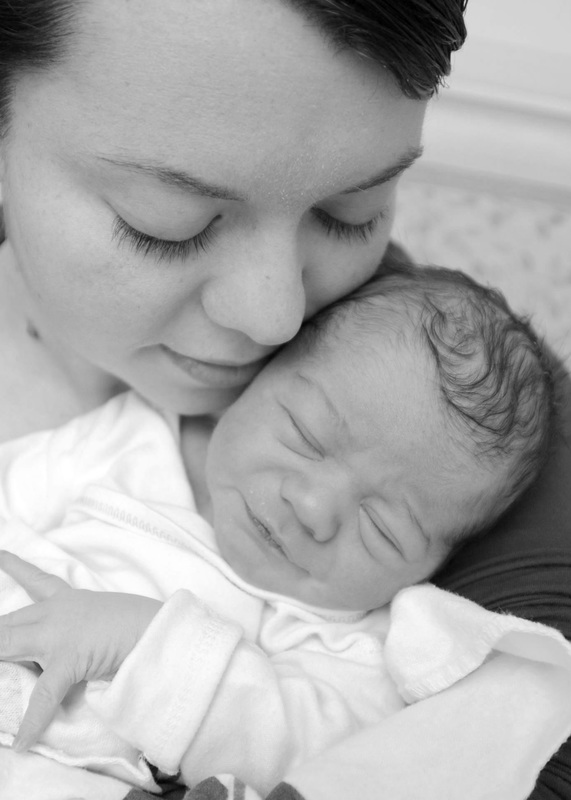Reading opens doors... and hearts
If you know me in real life, you know that I am the biggest book lover. I've devoured entire novels in weekends (I'm looking at you, Harry Potter and the Deathly Hallows.) Even when I was in middle school, I would plow through series like Redwall in no time at all, getting completely lost in the fantasy world.
I also spent my academic career studying English literature and language. I currently teach AP English Literature online. It's 100% safe to say that I love books, reading, and all of the magic that reading can bring. So it goes without saying that I work hard to foster this love of reading in my own three children. As an English teacher, I know that books can be entertaining (i.e. commercial fiction) but they can also be tools that empower our child to do better, be better, live better. Specifically, books can help teach our kids how (and why!) to be kind. The world is in desperate need of more little children who grow up and spread love and kindness. (Somewhere along the lines of Mother Theresa's "Let no one leave you without being happier" quote.) Right? It's our job to raise up kind, loving little humans, and books can be a great asset. 9 books that teach kids how to be kind
Reading to your kids at bedtime
Reading a book at bedtime is one of the coziest times to read to your child. It's also one of the best times to choose a book with a powerful meaning like the importance of being kind. At bedtime, kids are often tucked into bed so they are quiet and receptive to the message. It also gives them time to think about the messages as they drift off to dream land.
What's your favorite book about kindness?
Do you already read at bedtime? Let us know your favorite books!
This site contains affiliate links to products. We may receive a commission for purchases made through these links at no additional cost to you. We only suggest products we love and use.
0 Comments
Guest post by B. Anne Hancock, PsyD There’s nothing wrong with a married couple having an argument. In fact, some level of conflict is a good sign because it means the couple is communicating, rather than hiding emotions and avoiding intimacy. That said, there’s a big difference between the occasional disagreement and nonstop squabbling. Do you feel like you’re always having the same fight? Has there been a breach of trust that’s now bubbling up in little disagreements all the time? Perhaps life has been overwhelming lately, and you’ve lost sense of what matters most. Whatever the case, if you’re in a relationship where the fights never stop, you may need practical help to set a new course. Keep reading for advice on how to get to the cause of constant bickering and resolve it before it takes over your marriage. What's behind all those conflicts? Have you ever wondered why some couples communicate in a healthy way about disagreements and others get bogged down in constant fights? One important key is what they’re arguing about. For example, are you frustrated about who did the dishes last, or are you wondering if your partner truly cares about you? When you’re sparring about where to spend the holidays this year, is it about the travel plans or feeling controlled by your spouse? Couples who solve conflicts in a healthy way have learned how to look past surface issues to what’s happening underneath them. This allows them to cut to the main problem and expedites their ability to resolve it. Working through an argument Even if you understand the root issues of a fight, you still need to work through them properly. Healthy couples know not to have a serious heart-to-heart in the car before walking into the in- laws’ house on Thanksgiving. They also steer clear of poor discussion habits, such as shouting, attacking or refusing to look at the situation from another point of view. Rather, they choose times when they’ll be able to focus and communicate clearly. They look for areas of compromise. They focus on the reasons they want to be together and work towards resolution. 5 strategies for preventing bickering before it starts If fighting is the norm for you and your spouse, you may want to think about conflict prevention. Happy couples know what does and doesn’t work, and they adjust accordingly. With that in mind, consider the following strategies to prevent bickering before it starts:
In marriage, one of the most important lessons to learn is when and when not to fight. If you’ve been going through a period of major conflict, stop and think about what’s really going on. How can you and your spouse move toward, instead of away from, each other? Use the tips above to chart a new course for your relationship — and gain a more peaceful, happier life. About the author  B. Anne Hancock, PsyD is a prominent marriage therapist and founder of Wellness Counseling Center. A licensed Marriage and Family Therapist, Hancock specializes in working with couples and families. She has a doctorate in Psychology and a master’s degree in Marriage and Family Therapy. Hancock always works from a wellness-oriented, non-pathologizing point of view — which means no blame, no shame. In addition to couples counseling services, Hancock also conducts personalized two-and-a-half-day couples intensives.
When I was little, there was nothing quite as exciting as hearing “Let’s go for a walk” after dinner.
Looking back, I’m sure my mom wanted to tire us out before bed, and I definitely use that trick, but a pre-bed walk is so good for your kids ... and you too! After an emotionally-rough winter, we spent the spring and summer increasing our time spent together as a family and much of the that is time spent outside. We've gotten to the point where when I say "walk", my one-year-old daughter runs to get Barry (our Maltipoo) hooked up to his leash. So it's safe to say that we all love this habit. Curious how an after-dinner walk can benefit you? Benefits of an after-dinner walk
Even if your little ones played outside during the day, there are still benefits to going on one more stroll after dinner.
Benefits of a late walk include:
Gear that makes your walk even better
So to be clear, you don't really need anything besides some good shoes for walking, but I've found these things make an after-dinner walk even better.
Stroller Once of the best parts about an after-dinner walk is that everyone in your family can participate. While your older kids can walk (or run), your toddler or baby may just sit back and relax in the stroller. Even if your baby isn't walking, he still benefits from the fresh air, the company, and the sights/sounds of nature. My one-year-old loves riding in the stroller; in fact, whenever we are in the garage, she points to her stroller as if to ask "Is it time yet for our walk?!" If you're in the market for a new stroller, check out the BOB Revolution Flex 2.0 Jogging Stroller. Apple Watch If you're still working on losing baby weight (ahem... me), grab yourself a smart watch and log your calories from your walk. I love my Apple watch, and you better believe, I open the "outdoor walk" each night to keep track of my progress.
Dog Gear
Our dog accompanies us on every walk, and because after-dinner walks can get dark (especially in the fall), it's a good idea to keep your dog safe with a reflective leash or harness. What about you?
Do you go for walks as a family?
This site contains affiliate links to products. We may receive a commission for purchases made through these links at no additional cost to you. We only suggest products we love and use.
|
About KatieWife & Mama with a passion for peaceful parenting, natural living, homeschooling... and my daily café au lait. Archives
July 2020
Categories
All
|





